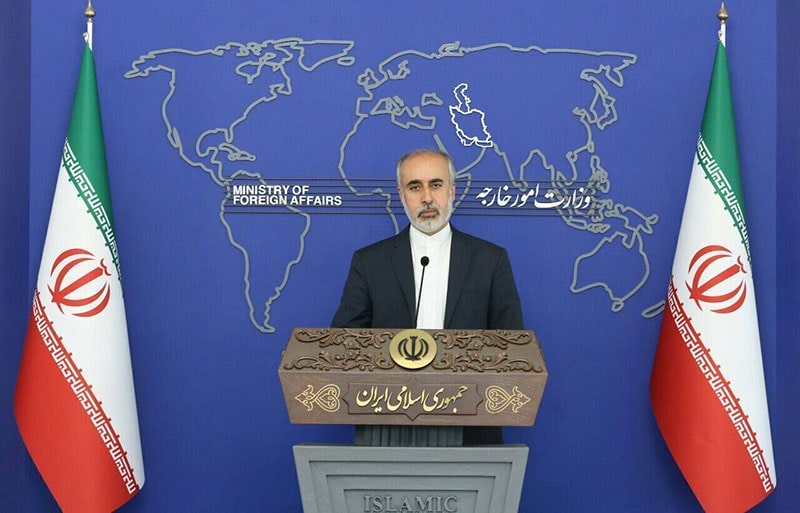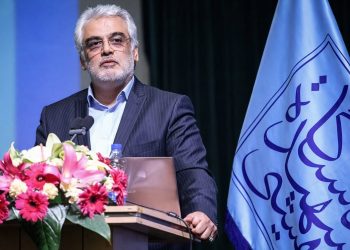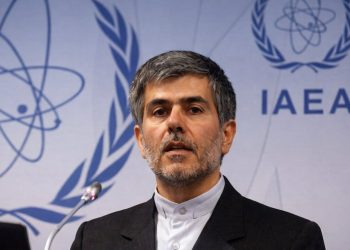Nasser Kanaani – Spokesman for the Ministry of Foreign Affairs of Iran
Today’s world increasingly needs the cooperation and participation of all governments to strengthen constructive relations through the promotion of multilateralism, maintaining international peace and security, and realizing sustainable development.
Today, avoiding and preventing any actions against the interests of human society such as extremism, violence, warmongering, unilateralism, violating the right of nations to determine their destiny, and resorting to threatening language, force, and illegal sanctions is an inevitable necessity.
A significant number of countries, especially the countries in Western Asia, still suffer from the wounds of colonialism and exploitation. The emphasis of some countries on unilateralism and trying to impose one-dimensional values in today’s modern world is the continuity of colonialism and exploitation. It is an international responsibility to oppose governments that try to impose their illegitimate values and demands on others through the addictive use of economic terrorism and sanction and stand against these illegitimate and irrational actions in a unified and effective manner. Unilateral and illegal sanctions which are imposed against independent nations to advance political goals are the same as war crimes and crimes against humanity since they intensify the pain of people in the sanctioned countries.
In such conditions, it is necessary for independent countries to seriously stand against this antihuman and illegal policy by adopting a convergent approach. The principles and spirit of the United Nations Chart emphasize opposition to any actions by countries that question the political independence of other countries and threaten them. The Western Asia region specifically, alongside some other regions in the world, is faced with numerous political, security, and economic challenges and crises. These problems will be only solved by resorting to dialogue, relying on commonalities, and using political procedures.
The long-term and systematic policy of the Islamic Republic of Iran has been the establishment of balanced and rational relationships with other countries, especially with its neighboring countries, based on the principles of cooperation, dialogue, common interests, mutual respect, and avoidance of interfering the internal affairs of other countries. To overcome the current challenges, the countries in the region as well as the relevant international institutions have a heavy responsibility and they are required to take effective measures, using all tools they have got, to promote common values of the human society, negate any actions against the international laws by some global activists, and facilitate the nations’ move towards the sustainable development.
We believe in the feasibility of a progressing evolution of international relations through cooperation, reduction and mitigation of differences, reduction of conflicts, and finally, the realization of international peace. And in this path, public diplomacy can play a constructive role in the form of an interactive approach. We believe that public diplomacy is not based on the negation of others, and in today’s world, it can guarantee the opportunity for all cultures to both express their own narrations in a cooperative atmosphere and hear their narrations, too.
The interaction between different cultures in the framework of cultural diplomacy is considered a branch of public diplomacy that can create an atmosphere in the public arena of international relations in which animosity, hatred, and pessimism can be reduced to the lowest possible level. And under mutual trust-building, we can witness the negation of violence, conflicts, and war in international relations. The first and foremost principle of cultural diplomacy is the acceptance of cultural diversity in the relationships between nations. Acceptance of religious, cultural, and ideological differences and recognition of cultural diversity can create a safe and respectful atmosphere for human societies and all international activists under which they can achieve their national interests without ignoring the interests of others.
We believe that in interactive public diplomacy, which is the opposite of a stubborn and self-centered view of traditional diplomacy, the actors of international relations, instead of being soldiers who promote war and conflicts to be armed with political, economic, and cultural weapons, can be the committed and responsible citizens of the global community who seek to pave the way for the political, cultural, and economic development of their own country and the world through cultural dialogue. In addition to accepting pluralism, public diplomacy also emphasizes the recognition of multiple types of actors in international relations in terms of content and acceptance of different cultures in international relations.
We believe that public diplomacy can control the unilateralism of governmental actors in international relations. As an arena in which non-governmental activists can play a role, and by which they can liberate from the margin imposed by traditional diplomacy, public diplomacy can be considered an introduction to the realization of dreams of peace and security in international relations. In this regard, public diplomacy has recognized a huge range of non-governmental organizations, friendship associations, and even citizens in their capacity for active participation in international relations. Holding this meeting that is aimed to promote international peace and security at the initiative of the Foundation of Dialogue and Solidarity of the United Nations, which is an active international non-governmental activist, is proof of the claim that international relations are advancing towards the increase in the role of public diplomacy and undeniable effectiveness of its actors.
I wish this meeting will be successful in the achievement of its goals.






